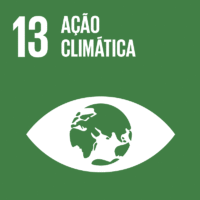Ciência_Iscte
Publicações
Descrição Detalhada da Publicação
Título Revista
Energy Economics
Ano (publicação definitiva)
2024
Língua
Inglês
País
Estados Unidos da América
Mais Informação
Web of Science®
Scopus
Google Scholar
Esta publicação não está indexada no Overton
Abstract/Resumo
This paper explores a range of simple models to study the relationship between global temperature anomalies and climate forcings. In particular, we consider quantile regression models with potentially time-varying parameters (TVP), implemented by Bayesian methods. In its most general specification, this approach is flexible in that it models distinct regions of distribution of global temperature anomalies, while also allowing us to investigate changes in the relationship between (natural and anthropogenic) climate forcings and temperatures. Our results indicate that there is indeed considerable variation over time in the relationship between temperatures and its drivers, and that these effects may be heterogeneous across different quantiles. We then perform a long-range forecasting exercise for temperatures, which suggests that incorporating TVP or explicitly modelling quantile levels or the combination of both features can improve prediction for different parts of the temperature distribution. In addition, we produce forecasts for 2030 considering the intermediate RCP 4.5 scenario: given that no single specification dominates, we account for model uncertainty by considering forecast averaging across all specifications. Our approach allows us to make statements about the probability of temperature levels — for instance, we find that a scenario of +1.8 °C will occur with a non-negligible probability under RCP 4.5.
Agradecimentos/Acknowledgements
--
Palavras-chave
Quantile regression,Time-varying parameters,Global temperature distributions,Forecast averaging
Classificação Fields of Science and Technology
- Outras Ciências Naturais - Ciências Naturais
- Economia e Gestão - Ciências Sociais
Contribuições para os Objetivos do Desenvolvimento Sustentável das Nações Unidas
Com o objetivo de aumentar a investigação direcionada para o cumprimento dos Objetivos do Desenvolvimento Sustentável para 2030 das Nações Unidas, é disponibilizada no Ciência_Iscte a possibilidade de associação, quando aplicável, dos artigos científicos aos Objetivos do Desenvolvimento Sustentável. Estes são os Objetivos do Desenvolvimento Sustentável identificados pelo(s) autor(es) para esta publicação. Para uma informação detalhada dos Objetivos do Desenvolvimento Sustentável, clique aqui.

 English
English


